Perfecting religious institutions, strengthening great solidarity
As a young Catholic, Mr. Pham The Duyet, Deputy Head of the Department of HIV/AIDS Disease Control, Nghi Loc Medical Center, Nghe An province, shared: The draft document has set out the requirement of "Continuing to strongly innovate thinking, promoting strategic breakthroughs, and creating a new development ecosystem". Mr. Pham The Duyet believes that creating this ecosystem must include an ecosystem for the healthy development of religions. We cannot call on religious people to accompany the nation when the legal corridor for that accompaniment is still "inadequate". We cannot promote religious resources if the institution is still "entangled". Therefore, to thoroughly resolve this bottleneck, so that the policy of ensuring and respecting freedom of belief can truly go into depth, I think the document needs to further emphasize the requirements of transparency, efficiency and development creation in perfecting the religious institution.
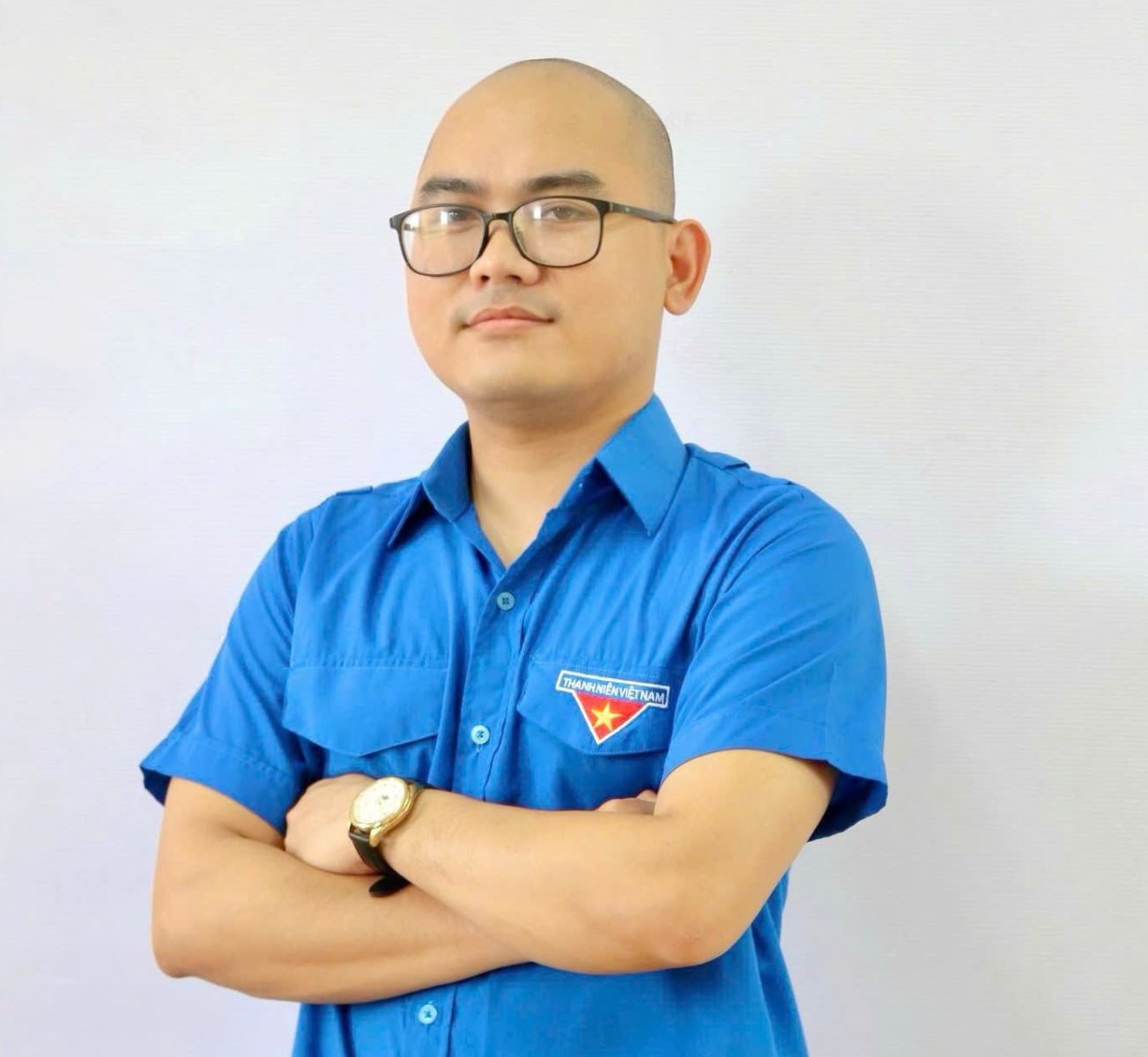
Mr. Pham The Duyet, Deputy Head of HIV/AIDS Disease Control Department, Nghi Loc Medical Center , Nghe An province.
“I propose to add to section III, on building and perfecting a synchronous system for rapid and sustainable national development, the following contents: Perfecting a synchronous system of institutions, policies and laws on beliefs and religions in the direction of truly ensuring the freedom of belief and religion of the people; promoting the good cultural and ethical values of religions. Promoting administrative procedure reform, thoroughly ending the 'inadequacy' and 'laxity' in state management of religion. Building a transparent, clear, constructive legal corridor, creating the most favorable conditions for legitimate and genuine religious organizations to promote resources, proactively participate in contributing to the cause of social security, health care, education , humanitarian charity, and sustainably accompanying the nation”, Mr. Pham The Duyet expressed.
Along with ensuring freedom of belief, an important and regular task that our Party always pays special attention to is protecting national security. Draft documents have consistently affirmed the determination to "resolutely and persistently fight to firmly protect the independence, sovereignty, unity and territorial integrity of the Fatherland; to protect the Party, the State, the People and the socialist regime".
The solution does not lie in mere security measures, the most sustainable solution lies in the direction that the draft documents have proposed: "Strengthening the building of a core force of prestigious people among ethnic minorities and religious people". However, to promote this role, there needs to be trust and a real coordination mechanism.
In practice, one of the major limitations is that "the work of building party organizations, managing and developing party members, especially in ethnic minority and religious areas, still faces many difficulties." This, along with the lack of a team of mass mobilization cadres who "have a firm grasp of the area and understand the culture", sometimes leads to rigidity and inflexibility in management, unintentionally creating a gap between the government and religion, giving hostile forces the opportunity to deepen and divide.
"The 14th Party Congress documents need a breakthrough in thinking about religious security: Shifting from 'management' thinking to 'accompanying' thinking, shifting from passive 'prevention' to active 'coordination'; needing to consider legitimate religious organizations and true believers as allies and reliable partners in the national security front. In particular, it is necessary to promote the role of religious youth, a young force with intelligence, sensitivity and mastery of cyberspace; which is currently the main front of distortion and sabotage activities," Mr. The Duyet commented.
In section XII "Strongly promoting the role of the people as the subject, socialist democracy and the strength of the people and the great national unity bloc", Mr. The Duyet proposed to add the following contents: Innovating the thinking and methods of religious work in the new situation; proactively building a close, effective and trustworthy coordination mechanism between functional agencies and legal religious organizations. Promoting the role and responsibility of dignitaries, monks, and followers, especially the force of 'prestigious people' and religious youth, considering this as the core force, an important partner in 'protecting the Fatherland early and from afar'. Proactively identifying and clearly distinguishing purely religious and belief activities from acts of taking advantage of religion to promptly fight and neutralize plots to divide and sabotage the great national unity bloc, ensuring political security and the sustainable and pure development of religions.
Along with that, in order to successfully implement the orientations on religion and national solidarity that the draft documents of the 14th Party Congress proposed, Mr. Pham The Duyet also made two key recommendations: First, it is necessary to urgently review and synchronously perfect the institutions and laws on beliefs and religions, prioritizing transparency, simplicity and creativity in state management. This is an urgent requirement to solve the institutional 'bottlenecks' that the drafts themselves have clearly pointed out as 'overlapping, entangled and unstable'.
The completion of the Law on Belief and Religion must follow the spirit of development, shifting strongly from pre-control to post-control. A transparent institution will prevent corruption and, most importantly, create the most favorable conditions for legitimate and genuine religions to maximize their resources for the cause of national development, in line with the spirit expected by the Party and State.
The second is to focus on investing in training and building a team of specialized cadres in the work of mass mobilization, ethnicity and religion who have in-depth knowledge, cultural understanding and sincerity. The draft action program has identified the task of building a team of mass mobilization cadres who have a firm grasp of the area, cultural understanding, and good organization and implementation of ethnic and religious work.
"To prevent 'hot spots' and 'complicated incidents', nothing is more effective than trust. To have trust, officials must truly understand the religious life and culture. I recommend that there should be a long-term strategy to train this group of officials, helping them overcome the mentality of avoidance and fear of responsibility to truly become a solid, friendly bridge between the Party, the State and religious communities," said Mr. Pham The Duyet.
Building a self-reliant and deeply integrated economy
Commenting on the draft documents of the 14th National Party Congress, Mr. Vu Hong Quan, Chairman of the Gia Lai Province Young Entrepreneurs Association, emphasized that the documents not only summarize the practical reality, but also serve as a compass for the new development period, a period of aspiration to rise up, be self-reliant and creative. I am particularly impressed with the Party's orientation on building a modern, internationally integrated, socialist-oriented market economy, in which science and technology, innovation, digital transformation and the private economic sector are identified as the most important driving forces of growth and sustainable development.
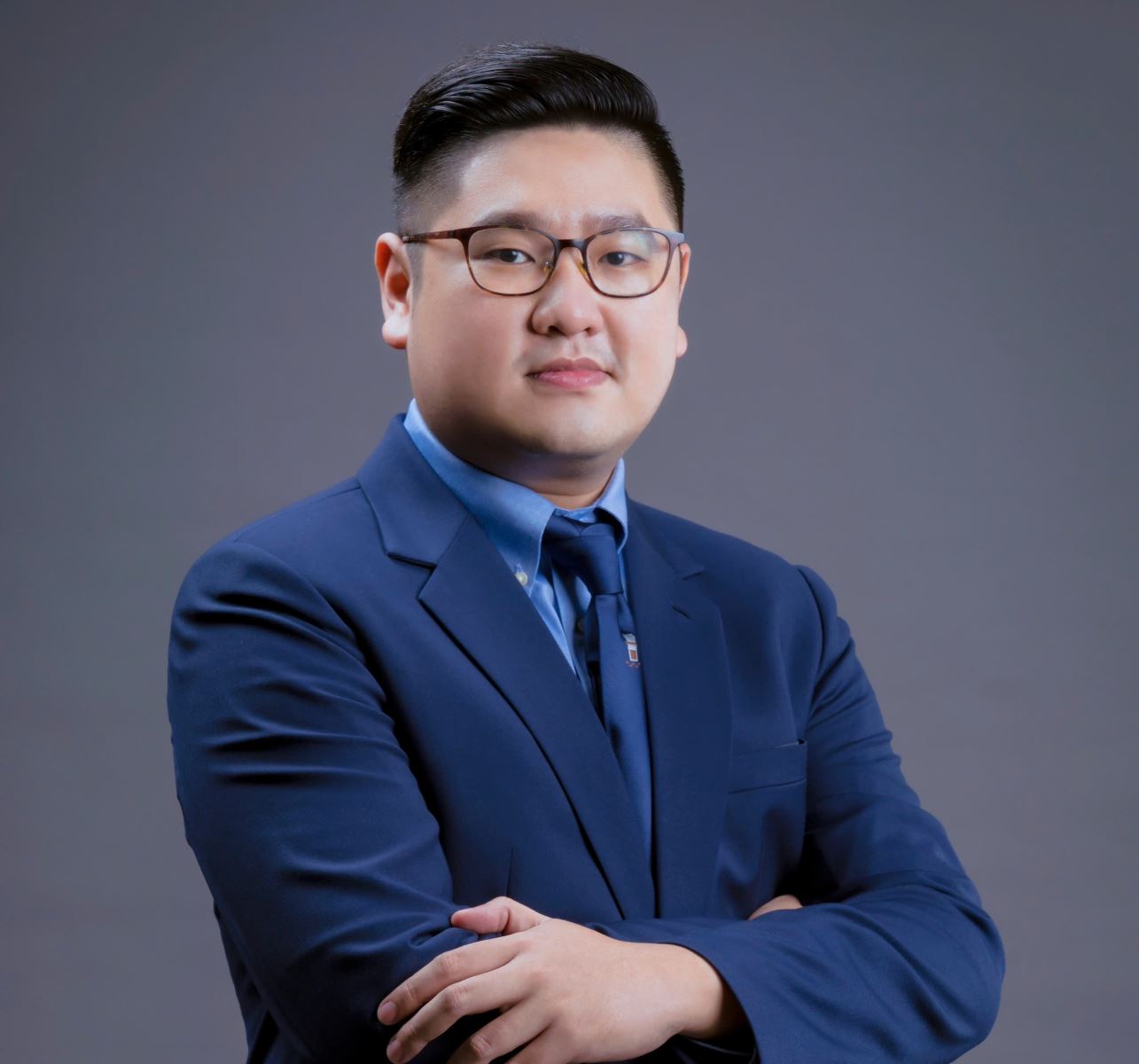
Mr. Vu Hong Quan, Chairman of Gia Lai Province Young Entrepreneurs Association.
Regarding the new development institution and growth model, according to Mr. Vu Hong Quan, the draft has outlined the orientation: "Establishing a new growth model with the goal of improving productivity, quality, efficiency, added value and competitiveness of the economy; taking science, technology, innovation and digital transformation as the main driving force". This is a correct and groundbreaking viewpoint, but it is necessary to clarify the nature of "national strategic autonomy", that is, the capacity to master the development model, technology, knowledge and creative people of the country.
Mr. Quan proposed to edit and supplement in the direction of emphasizing more clearly the foundation and subjects of the new growth model such as: "Establishing a new growth model based on national strategic autonomy capacity; taking mastery of knowledge, technology and creative people as the foundation; synchronously promoting traditional and new growth drivers, in which science, technology, innovation and digital transformation are the main drivers".
According to Mr. Quan, this expression helps to clearly demonstrate the qualitative transformation of the Vietnamese economy: From a growth model based on investment, labor and resources to a development model based on knowledge, creativity and endogenous capacity. At the same time, this is also a step to concretize the vision of national strategic autonomy that the draft has initiated, not only economic autonomy, but also autonomy in science, technology, data and creative people, thereby building an independent, modern, integrated and globally competitive economy.
Regarding promoting the role of the private economic sector, Mr. Hong Quan said that in Section IV, the draft affirms: "... private economic development is the most important driving force of the economy...". This is a clear step forward in the Party's perception and positioning of the private sector, demonstrating innovative thinking in line with development requirements in the new period.
However, in the context of the country moving towards national strategic autonomy based on science and technology, innovation and digital transformation, it is necessary to clarify the role of the private economic sector, not only as a "growth driver", but also as a "core force of the autonomous economy", where the creativity, adaptability and innovative spirit of Vietnamese enterprises converge.
Mr. Quan proposed to adjust and supplement in the direction of clarifying the role of the private economy such as: "Developing the private economy to become a core force in building an autonomous economy, strong in technology, governance and innovation capacity; directly participating in the development process of key industries and fields and forming new production capacity based on knowledge, data and technology owned by Vietnam. Along with focusing on developing large, strong private economic groups, on par with the region and the world, it is necessary to pay attention to supporting small and medium enterprises, innovative startups and young entrepreneurs to promote their dynamic and creative spirit, participate in the value chain and the national innovation ecosystem".
This addition will clarify the complementary relationship between the state economy and the private economy: the state economy plays a pivotal and strategic stabilizing role, while the private economy is a dynamic and creative force, directly promoting technological innovation and deeper integration into the global value chain, contributing to improving the competitiveness and autonomy of the Vietnamese economy in the new period.
Regarding attracting foreign investment and connecting domestic enterprises, the draft has identified the right direction, in line with the requirements of sustainable development and national strategic autonomy. However, reality shows that the level of technology diffusion and connection between the FDI sector and domestic enterprises is still limited. In the context of the country moving towards building national autonomy capacity based on science and technology, innovation and digital transformation, foreign investment capital needs to be seen not only as a source of finance or employment, but also as a resource for transforming technology and knowledge.
Therefore, the policy to attract foreign investment needs to be adjusted in the direction of focusing on binding criteria on technology transfer, localization and research and development (R&D) cooperation with domestic enterprises. At the same time, there needs to be a synchronous solution to improve the technology absorption capacity of Vietnamese enterprises, along with building an effective intermediary connection mechanism to promote technology transfer and form a domestic production value chain.
Mr. Vu Hong Quan suggested that it is necessary to clarify the orientation of attracting foreign investment such as: "Attracting FDI selectively, taking technology transfer, research and development (R&D), human resource training and forming domestic value chains as key criteria; prioritizing projects with commitments to cooperate with Vietnamese enterprises in production and R&D. Building a national program to support domestic enterprises to participate in FDI supply chains, developing innovation centers and regional industrial support centers to promote product localization, spreading technology and knowledge".
Regarding the development of culture, people, education, science and technology in the national autonomy strategy, the contents in Sections V, VI and VII of the draft have shown a comprehensive vision of the development of culture, people, education, science, technology and innovation. However, it is necessary to show more clearly the connection between these areas as unified pillars in the strategy of "national strategic autonomy based on knowledge, technology and creative Vietnamese people".
"In the process of building self-sufficient capacity in knowledge, technology and innovation, it is necessary to promote the pioneering role of the young generation, especially young intellectuals, young scientists, young entrepreneurs and young artists because this is the force that has the ability to quickly access new knowledge, dare to think, dare to do and be creative. However, the formation of national self-sufficient capacity needs to be organized comprehensively and synchronously, under the leadership of the Party and with the participation of a team of experts, leading scientists, the business community and the whole society, creating a common strength to develop a self-sufficient economy and creative people in Vietnam," Mr. Vu Hong Quan emphasized.
The Chairman of the Gia Lai Province Young Entrepreneurs Association also proposed emphasizing specific action directions, including: Connecting education, science and technology, culture and innovation into a unified system, with creative people at the center. At the same time, building a national program to develop creative human resources in Vietnam, linking knowledge training, digital skills and creative thinking with the desire to contribute. Along with that, developing a young creative ecosystem, connecting the team of scientists, entrepreneurs, intellectuals and young artists with innovation centers, research institutes, universities and businesses, contributing to forming the country's self-sufficient capacity in knowledge, technology and culture.
"With firm belief in the leadership of the Party, the young Vietnamese businessmen and intellectuals are determined to continue promoting the pioneering spirit, proactively grasping and mastering science and technology, innovating, contributing to building a self-reliant economy and enhancing Vietnam's position in the international arena," said Mr. Vu Hong Quan.
Comprehensive development of Vietnamese culture and people
Singer Nguyen Thi Ngoc Ha (Ha Myo), Vietnam Music and Dance Theater, Ministry of Culture, Sports and Tourism shared, our Party has affirmed: "Culture is the spiritual foundation of society, both the goal and the driving force of sustainable development". This places a great responsibility on those working in cultural affairs, including us, the artists.
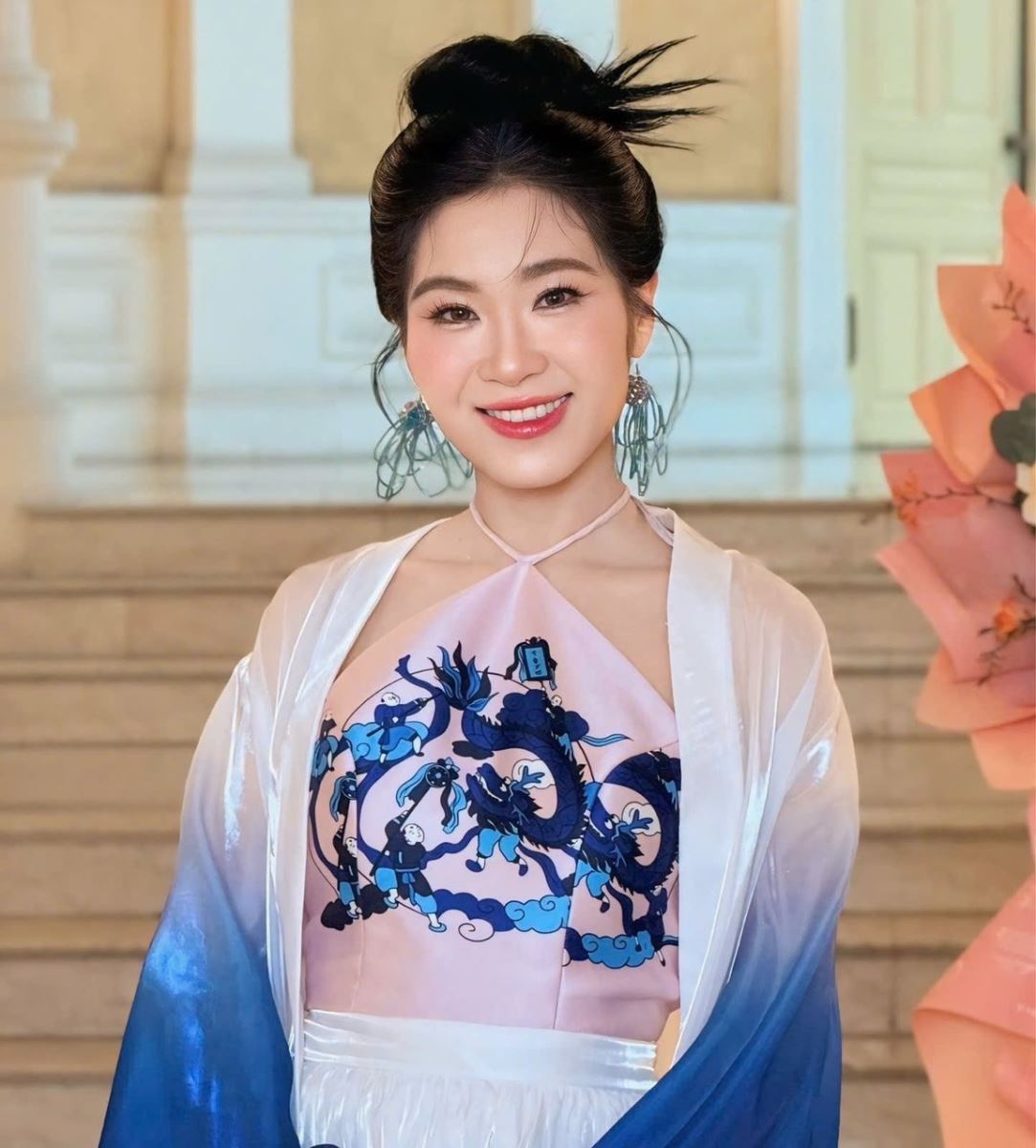
Singer Ha Myo, Vietnam National Music, Dance and Dance Theater, Ministry of Culture, Sports and Tourism.
“I realize that each work of art, each performance, is not simply an entertainment product. It can inspire national pride, nurture the soul, cultivate personality, and more importantly, it instills in the young generation a love for their roots and a desire to rise up. Therefore, an artist is not only a performer, but also a person who preserves and spreads identity,” singer Ha Myo expressed.
In practice, if we only preserve culture in a static way, heritage can easily become unfamiliar to the young generation. However, if we know how to create on the basis of tradition, we can turn heritage into a source of living inspiration. However, to be able to carry out this mission well, those working in cultural affairs need to pay attention to policies: First, there needs to be a worthy remuneration mechanism, so that artists can devote themselves to creation, without being interrupted by life pressures.
Second, we need a continuous training and development environment, not only in artistic skills, but also in technology, communication, and management. In the digital age, artists are both creators and disseminators, so comprehensive knowledge is needed. Third, we need to protect copyright and encourage creativity. Many digital art products are currently being copied and distributed illegally, directly affecting the creative motivation of artists.
Nowadays, every young artist standing on stage not only represents themselves, but also represents Vietnamese culture to international friends. “I have brought Xoan and Xam singing combined with modern performances to a number of international events and found that foreign audiences were extremely interested. They found in it both the difference of Vietnamese identity and the closeness in modern musical language. That shows that the artist is a “cultural ambassador”, contributing to bringing Vietnam to the world through the language of art”, Ha Myo confided.
From practical activities, singer Ha Myo proposed some contents such as: Promoting policies to encourage creativity based on heritage, so that each heritage can be "reborn" in a modern environment; establishing a fund to support young creative artists, helping new experiments have the opportunity to reach the public. At the same time, strengthening international cooperation in culture and art, so that Vietnamese artists can both learn and spread national identity to the world.
"I believe that with the attention of the Party and the State, with the responsibility and passion of those working in cultural affairs, we will build an advanced Vietnamese culture, imbued with national identity, both deeply integrated and preserving the national soul. For me personally, every musical product, every time I stand on stage is an opportunity to fulfill that mission, spreading love for Vietnamese culture, arousing pride and inspiring the young generation," singer Ha Myo shared.
It can be seen that the common point in the comments contributed to the draft document is the aspiration to create a modern, deeply integrated Vietnam. To realize that goal, we must first master knowledge, technology and nurture creative human resources; at the same time, synchronously promote the strength of the private economy, build a healthy religious ecosystem, and a culture and art with strong identity in the digital age.
Source: https://baotintuc.vn/thoi-su/lam-chu-tri-thuc-hoan-thien-the-che-phat-huy-dong-luc-van-hoa-20251114113301636.htm




![[Photo] Unique art of painting Tuong masks](https://vphoto.vietnam.vn/thumb/1200x675/vietnam/resource/IMAGE/2025/11/14/1763094089301_ndo_br_1-jpg.webp)

![[Photo] Unique architecture of the deepest metro station in France](https://vphoto.vietnam.vn/thumb/1200x675/vietnam/resource/IMAGE/2025/11/14/1763107592365_ga-sau-nhat-nuoc-phap-duy-1-6403-jpg.webp)

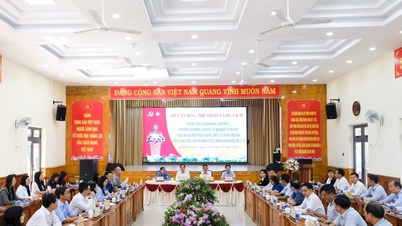

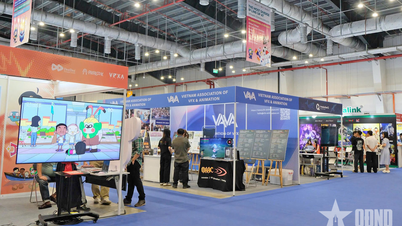

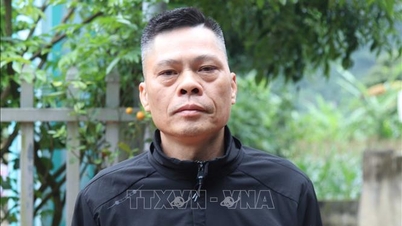
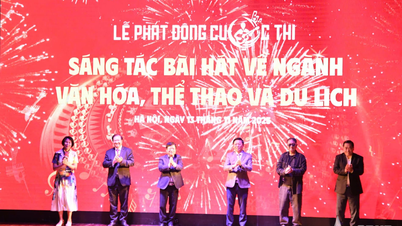
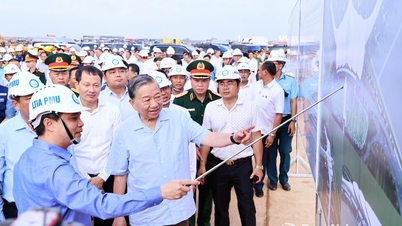

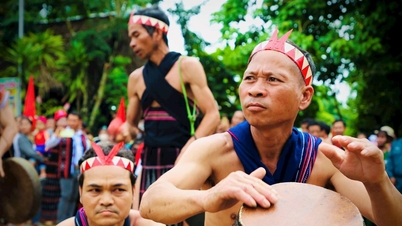

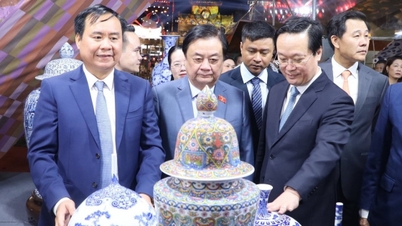

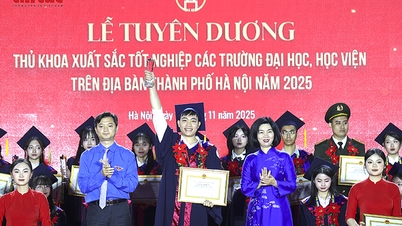
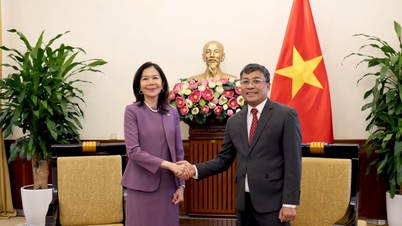
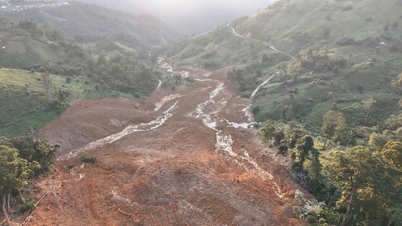
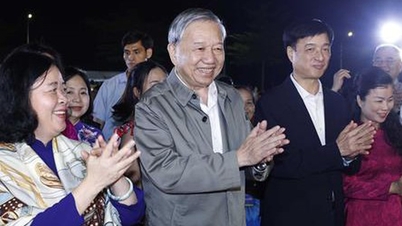

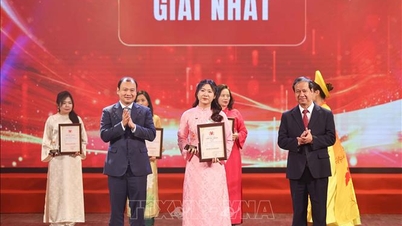




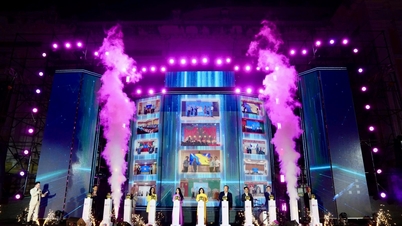
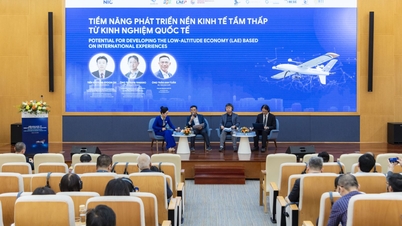
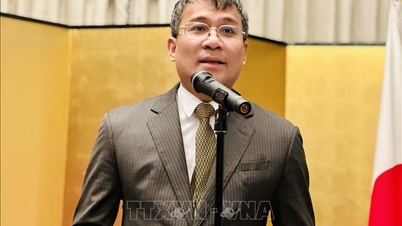

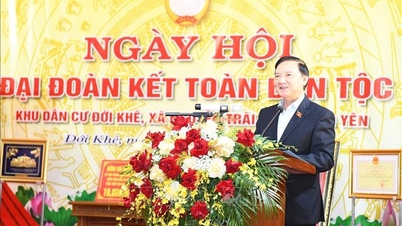
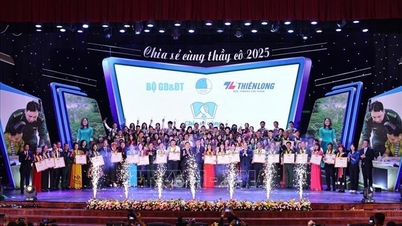

![[Photo] Special class in Tra Linh](https://vphoto.vietnam.vn/thumb/1200x675/vietnam/resource/IMAGE/2025/11/14/1763078485441_ndo_br_lop-hoc-7-jpg.webp)











































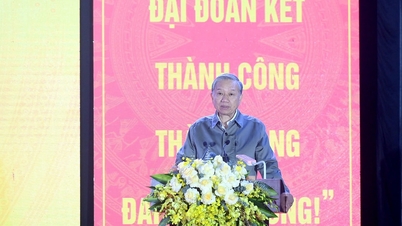



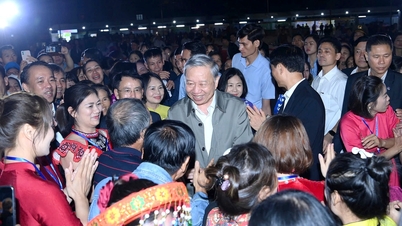
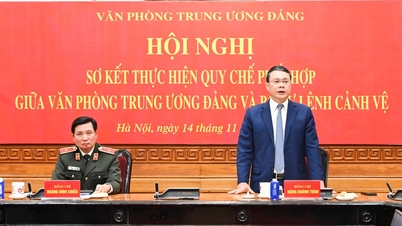




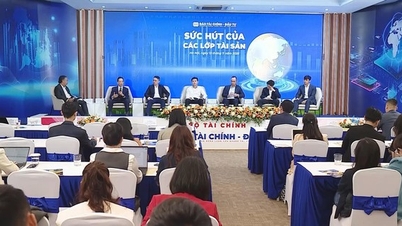
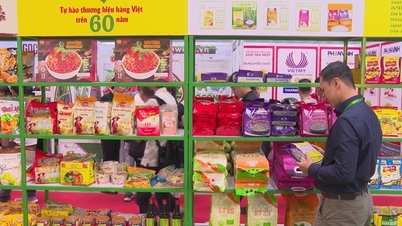
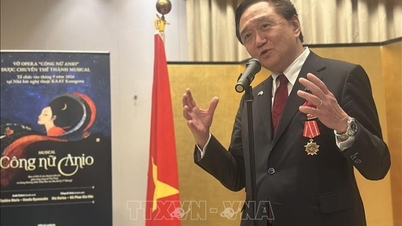

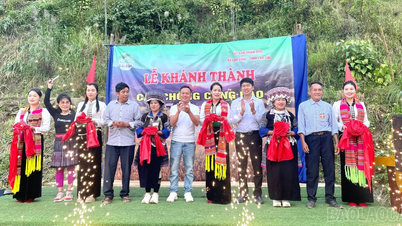

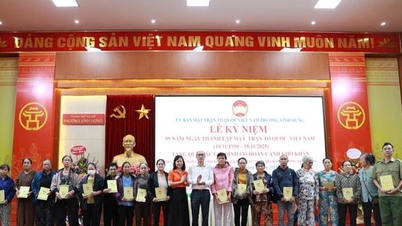











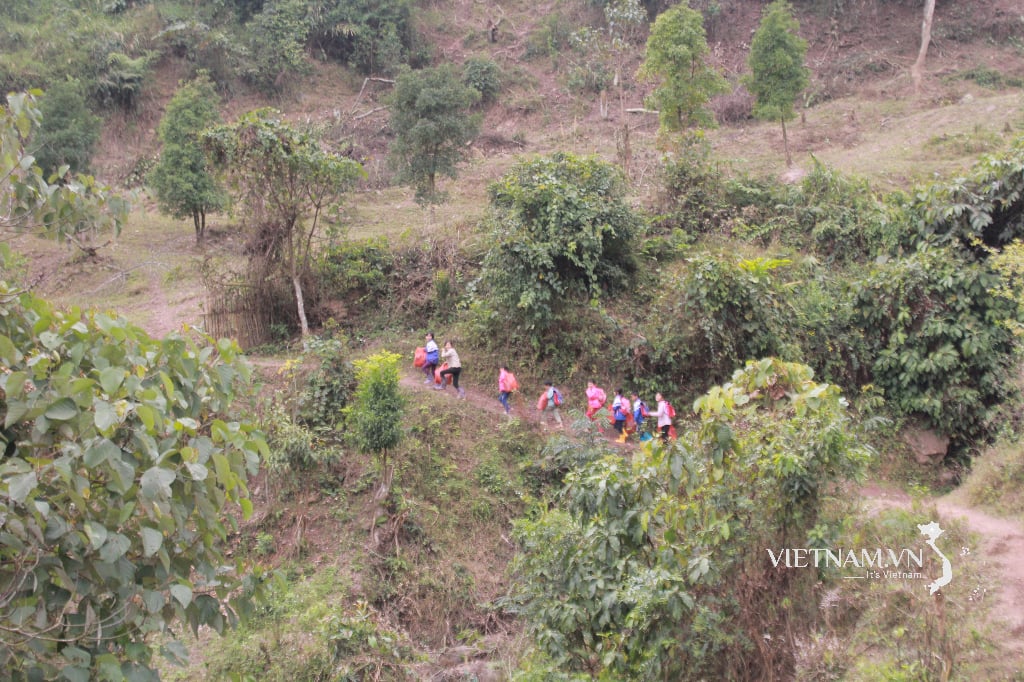
Comment (0)